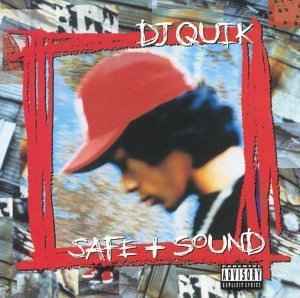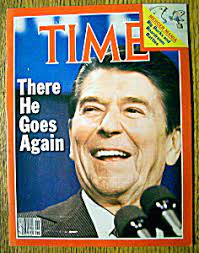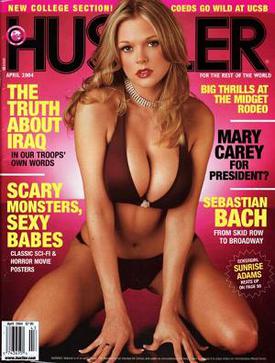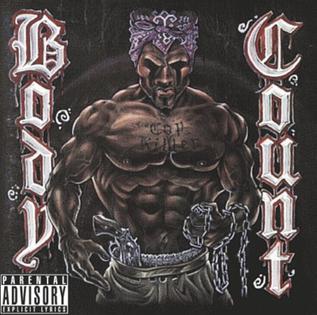Freedom of Thought in Prison
So why are incarcerated adults treated like children, do these indignities serve any legitimate penological interests, and (re: music censorship) are these type of practices even legal?
The first two questions would probably require an admittance that these practices exist and I doubt that will be forthcoming, so I will address the legality. It’s complicated. It is well established law that all people in this country are theoretically guaranteed free speech and freedom of thought. These Supreme Court rulings are all applicable to prisoners (some are specifically for prisoners):
“The fact that society may find speech offensive is not sufficient reason for suppressing it, indeed, if it is the speaker’s opinion that gives offense, that consequence is a reason for according it Constitutional protection.” (See Reagan v. Time Incorporated, 468 U.S. 641, 648-49, 104 S.Ct. 3262 1984).
“The government may not prohibit the expression of an idea simply because society finds thew idea itself offensive or disagreeable.” (See Hustler Magazine Incorporated v. Falwell, 495 U.S. 45,46,108 S.Ct. 876-882)
“. . . above all else, the First Amendment means that the government has no power to restrict expression because of its message, its ideas, its subject matter, or its content.” (See, Police Department of Chicago v. Mosley, 408 U.S. 92,95,92 S.Ct. 2286,2290 (1972).
That ruling was issued in favor of prisoners, specifically and there have been others. The problem is that Access Entertainment is a private company and even though prisoners are technically allowed to listen to anything they want, Access is the only music streaming service contracted by the State of New Mexico, Department of Corrections. Without legal compulsion the State will probably not renegotiate contracts in order to protect prisoner’s First Amendment rights. The same can be said for every state.
Prison mailroom officers routinely impose puritanical standards on prisoners regarding what can or cannot be sent or received. The Education Departments at most facilities are allowed to show weekend movies provided they are rated PG-13. These passive/aggressive practices reflect a dramatic culture shift which has taken place in the last twenty years throughout New Mexico prisons.
The old correctional adage used to hold that “people are sent to prisons as punishment, not for punishment” now gang modules punish prisoners indefinitely and many of their officers wear the Punisher insignia on their gear. “Teaching people a lesson” has taken on pathological levels in corrections and this is especially true in the higher administration ranks.
Although prisoners retain a theoretical right to free speech, the reality of their access is about sixty years behind the free world. Victorian era standards are imposed on prisoners. Officers reject mail for any number of reasons. This enabling policy can be found at NMCD policy (CD-151201.4) but it’s mostly concerned with perceived obscenity. Policy seems to follow the earliest legal definitions of obscenity in the United States. Those definitions originate from:
The old correctional adage used to hold that “people are sent to prisons as punishment, not for punishment” now gang modules punish prisoners indefinitely and many of their officers wear the Punisher insignia on their gear. “Teaching people a lesson” has taken on pathological levels in corrections and this is especially true in the higher administration ranks.
Quoted in Marc Schnall, “The United States Supreme Court: Definitions of Obscenity, “Crime and Delinquency” 18,1972,60.
These draconian standards were overturned in Roth v. United States and Alberts v. California decisions. In 1957 the Court ruled:
All ideas having even the slightest redeeming social importance-unorthodox ideas, even ideas hateful to the prevailing climate of opinion have the full protection” of the First Amendment’
Friedman, Leon, ed. Obscenity: The Complete Oral Arguments Before the Supreme Court in the Major Obscenity Cases (Chelsea House Publishers, 1990, 61, Busy, Sean D. et al, Parental Advisory-Explicit Content: The Parents Music Resource Center Conservative Music Censorship, and the Protection of Children, May 2018
The Department of Corrections has yet to catch up.
I bring up these dry facts to illustrate one of many paradoxes in prison. There have been many hard fought legal battles to secure the fundamentally American right of free thought (even in prisons), however, corrections departments across the country, while ostensibly claiming to respect American values are actually further oppressing the disadvantaged. Put simply, free speech in prison won’t be guaranteed without a fight.
Part of mental health is an autonomous mind. The deprivation of choice only goes so far and eventually prisoners will have to make their own decisions. How they feel will affect that:
Concrete walls, little natural light, and a lack of overall stimulation can take a serious toll on mental health. People in prison have few ways to relieve stress. And their sterile environment is likely to fuel boredom, which can be quite stressful in itself.
Morin, Amy LCSW, The Mental Effects of Being in Prison, verywellmind
It seems that the stress imposed on an activity meant to relieve stress has taken an almost sinister, reverse psychology quality. Prisoners should have the opportunity to buy edited music if they want but this is a non-threatening decision which ought to be totally in the hands of the buyer. It’s perfectly reasonable to conclude that relaxed people are more likely to make healthy decisions and it can’t be a stretch to say healthy decisions would reduce recidivism.
When prisoners give up on music and media access, that seems like a major obstacle to forming social connections. Allowing prisoners the opportunity to participate (to such an innocuous extent) in popular culture would have to help prisoners get much less out of step with the communities to which they will eventually return. Since their old social networks could be gone, they will need the tools to create new ones.
Prisoners want and need music which affirms their humanity. A person who can be coerced into unhealthy activities by means of a song is just as likely to get that unhealthiness out of their system by means of the same song. A prisoner may listen to “Fuck Tha Police” by N.W.A. or “Cop Killer” by Body Count just to release frustration about an unjust system. This, in turn, may calm a prisoner down even if it doesn’t fix the initial cause of their frustration.
In an NPR article about censored materials in prison, Rebecca Ginsburg of the Education Justice Project was quoted as saying “It’s so important for people who are in prison to be able to have access to materials that give them hope and a reason to want to be a part of society again, to want to engage, to see the future.” I would include that it’s equally important to remember, and understand the past. Certain songs uplifted our spirits but they were sometimes an unofficial documentary of our neighborhoods and eras as well. It just so happens this history was sometimes profane but it must never be whitewashed. I believe that freedom of thought must necessarily include the perspective of time and freedom to remember.
There is plentiful documentation about the healing power of music in prison; however, I don’t know if any studies have been done to determine the effects of music deprivation in prison. When the majority of a person’s favorite music is either taken away entirely or rendered unlistenable, it has to have a detrimental effect on their mental health. I couldn’t really find anything to this point but I don’t want to imagine who may have conducted such experiments.









Leave A Comment